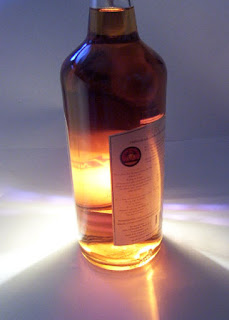Today is National
Rum Day. Rum is a distilled alcoholic beverage made from sugarcane
by-products, such as molasses, or directly from sugarcane juice. So
what else is there to know?
- Rum, or the precursors of it, were the first distilled spirits the human race ever made. India and China are believed to be the first places to try it. In the 14th century, Marco Polo wrote about a "very good wine of sugar" offered to him in the area that became modern-day Iran. A liquid identified as rum was found in a Tin bottle found on the Swedish warship Vasa, which sank in 1628.
- Nobody knows for sure what the origin of the word "rum" is, but there is no shortage of theories. It's British slang for "the best" as in "having a rum time" (unlikely as early rum issued by the Royal Navy wasn't that nice); it comes from the last syllable of the Latin word for sugar, saccharum; it comes from a Romani word for strong or potent; it comes from the Dutch word for a drinking glass; or from the Devon dialect word “Rumbullion”, which means an uproar or tumult, which is what you'd get if a bunch of people drank too much of it.
- The origin of rum as we know it today was on the sugarcane plantations of the Caribbean in the 17th century, most likely on the island of Barbados. Slaves working the plantations noticed that a by-product of sugar production, molasses, could be fermented into a nice drink.
- It proved equally popular with the slave owners, and from there, in Colonial North America. The first rum distillery in the British colonies of North America was set up in 1664 on present-day Staten Island. New England later became the centre of rum production because there was plenty of wood to make barrels and people who knew how to make barrels. It's thought everyone in the American colonies was drinking 14 litres of rum a year on average. It was so popular it was used as currency. There is an account of a slave called Venture Smith who was sold in Africa for four gallons of rum and a piece of calico.
- Think our politicians are corrupt and peddling in lies? In colonial America, an election would often be won on the basis of which candidate was most generous with rum. The candidates drank rum and distributed it at hustings to show they were "down with the people". There is even an account of one candidate who won an election because he allowed people to help themselves to his rum rather than pouring it out for them as his rival did.
- Think of rum and you think of sailors and pirates. The association of rum with pirates started, of course, with the fact that rum was used as currency, and was reinforced by pirate stories such as Treasure Island.
- Sailors in the Royal Navy were issued with rum rations every day as recently as 1970, when the practice was finally abolished. This started as a way to stop the sailors from getting scurvy (although it was the lime juice it was served with, rather than the rum, which prevented the disease). The rum and lime mixture was later watered down with Water or Beer, because the sailors would get drunk on it. The watered down mixture became known as "grog". While sailors no longer get a daily tot of rum, it can still be issued on very special occasions - such as royal weddings. The order "splice the mainbrace" once meant that the crew had to perform one of the most difficult and arduous tasks on board a ship - fixing the mainbrace, often in the middle of a raging battle. The job was so difficult that once it was done, the sailors who'd done it got extra booze. Now, it just means extra booze without the hard work. However, the order can now only be given by a member of the Royal Family or the Admiralty.
- Other names for rum are Nelson's Blood, kill-devil, demon water, pirate's drink, navy neaters, and Barbados water. The name Nelson's blood comes from the legend concerning Nelson's corpse being preserved in a cask of rum when it was being transported back to Britain for burial. When the cask arrived in England, it was opened and the rum was all gone. Closer inspection revealed that a hole had been drilled in the cask presumably so the sailors could drink the rum. This is also the origin of the term "tapping the Admiral" meaning to take a surreptitious drink from a cask through a Straw. The official record of the voyage, however, doesn't mention this, only that Nelson's body was placed in "refined spirits".
- Today, most of the world's rum production occurs in the Caribbean and Latin America. 80% of it comes from Puerto Rico.
- Cocktails which contain rum include the Cuba libre, Daquiri, mojito, mai tai, zombie and Pina Colada. The rum sour was created in Barbados and originally served in a conch shell.
Browse other topics I've covered in this blog - HERE.
Like my Facebook page for news of Topical Ten posts posts on my writing blog, a weekly writing quote and news of upcoming publications |


No comments:
Post a Comment